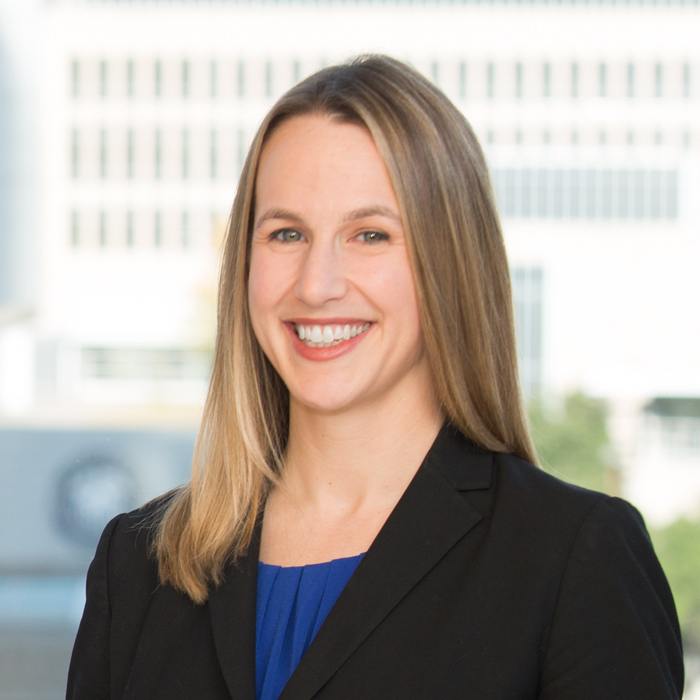By Virginia Alverson Mimmack & Erica Benites Giese *
As a result of the Trump administration’s expanded Medicare telehealth coverage, providers are now able to offer and be reimbursed for a wider range of services provided via telemedicine. In light of the current COVID-19 public health emergency, this expansion gives greater flexibility to both patients and providers. Telemedicine is a powerful tool that has increased in popularity during the pandemic because it allows an alternative to a traditional in-person appointment.
For more information on the expansion of Medicare telehealth coverage, please see Jackson Walker’s previous article, “Telehealth: A Powerful Tool in Fighting COVID-19 Emergency-Driven Waivers and Payment Parity Requirements.”
Telehealth Fraud
As the use of telemedicine rises, the Department of Justice (DOJ) is remaining vigilant to ensure that legitimate telehealth services are not undermined by the payment of kickbacks or other fraudulent schemes. On March 20, 2020, Attorney General William Barr directed all U.S. Attorneys to prioritize the detection, investigation, and prosecution of all COVID-19 related fraud. Attorney General Barr has also called on the general public, including hospitals, to report suspected criminal conduct. Reported fraudulent telehealth services are subject to liability under the False Claims Act (FCA).
Typical FCA fraudulent schemes involving telehealth include:
- Billing medically unnecessary services
- Billing for services that are not provided
- Submission of claims for services for a phantom patient
- Billing virtual check-ins or e-visits as telehealth visits with a higher reimbursement rate
- Up-coding: inflating the time and complexity associated with office visits to increase reimbursement
- Unbundling: billing global or grouped procedures as separate claims to increase reimbursement
- Illegal kickbacks: payments of kickbacks in exchange for a physician prescribing or ordering durable medical equipment and diagnostic tests
Of all the potential fraudulent schemes, kickbacks and billing schemes are most commonly investigated and prosecuted by the government. The DOJ has already prosecuted significant telehealth schemes in both the civil and criminal divisions. A few examples are outlined below:
- The DOJ prosecuted one of the largest healthcare fraud schemes ever charged on September 27, 2019. The scheme involved payments of illegal kickbacks to medical professionals working with telemedicine companies in exchange for prescribing medically unnecessary cancer genetic tests. The investigation involved thirty-five defendants, dozens of telemedicine companies and laboratories, and over $2.1 billion in losses.
- On April 23, 2020, the DOJ charged a Georgia woman for her participation in a $60 million telemedicine scheme. The fraudulent operation consisted of illegal kickbacks paid to medical providers in exchange for ordering durable medical equipment (DME). Orders from this scheme are alleged to total over $60 million for thousands of patients.
COVID-19 Testing Fraud
Fraudulent schemes related to COVID-19 testing have become a widespread problem and are quickly capturing the attention of law enforcement. With regards to telemedicine, two main types of COVID-19 fraud schemes have emerged. Many schemes involve telemedicine marketers who solicit Medicare beneficiary information in exchange for a free COVID-19 test to be sent to the beneficiary. These marketers will “confirm” the beneficiary’s personal information via text message, phone call, social media, or even in-person visits. The test is never performed or sent to the beneficiary. The marketer then bills the test to Medicare without the beneficiary’s knowledge.
Other schemes include illegal kickback agreements in which laboratories will pay healthcare providers or telemedicine companies to order COVID-19 tests that are not medically necessary, or bundled COVID-19 and Respiratory Pathogen Panel (RPP) tests. The DOJ is continuing to monitor that administered COVID-19 tests were medically necessary. While demonstrating a lack of medical necessity for certain tests or equipment may be difficult, the government frequently uses data analytics to determine necessity. For example, the government may look at billing patterns, how many patients a provider sees per day, and the rate at which doctors provide services or treatments, in order to determine unusual or suspicious patterns.
The DOJ reports that it will focus on billing and data analytics in a few areas regarding COVID-19 testing. In particular, the Respiratory Pathogen Panel (RPP) test, which detects respiratory viruses and bacterial pathogens, does not detect the COVID-19 virus. However, the test is billed at a much higher rate than the COVID-19 test, leading to the potential for fraud if the two tests are billed together. Kickback schemes have emerged in which laboratories will pay telemedicine companies to order bundled COVID-19 and RPP tests in order to receive the large reimbursement. To be clear, these simultaneous RPP and COVID-19 tests are not necessarily medically inappropriate (as there may be legitimate reasons for ordering both tests), but when ordered by a provider who is receiving remuneration from a lab for doing so, there is clearly an issue. A few examples are outlined below:
- On March 26, 2020, the U.S. Attorney’s office for the District of New Jersey charged a man for his role in a kickback scheme that paid marketers for referring patients for COVID-19 tests, bundled with the more expensive RPP tests. The man had orchestrated the scheme and received monetary payments for his involvement.
- A woman was arrested in Florida on May 15, 2020 for her involvement in a similar scheme that paid kickbacks to telemedicine companies and marketers for ordering bundled COVID-19 and RPP tests.
While there may be reasons for the government to investigate certain healthcare-related practices, providers should not be discouraged from incorporating telemedicine into their practice. Telemedicine is a valuable tool that provides flexibility and increased access to healthcare for Medicare beneficiaries during the COVID-19 pandemic. The expansion of Medicare telehealth coverage allows providers to offer additional services to their patients while also receiving payment for those properly rendered services. Providers should just be aware of the existence of these schemes and steer clear of them.
The government response to COVID-19 remains ongoing, and subsequent changes may come into effect as the public health emergency evolves. You can keep up with the latest COVID-19 legal news at JW.com/Coronavirus.
* Annabelle Copeland, a 2020 Summer Associate from Wake Forest University School of Law, contributed to the article.
Related Resources:
- JW Coronavirus Insights & Resources microsite »
- COVID-19 & Your Business: Frequent Questions »
- JW Fast Takes Podcasts & Webinars »
Please note: This article and any resources presented on the JW Coronavirus Insights & Resources site are for informational purposes only, do not constitute legal or medical advice, and are not a substitute for legal advice from qualified counsel. The laws of other states and nations may be entirely different from what is described. Your use of these materials does not create an attorney-client relationship between you and Jackson Walker. The facts and results of each case will vary, and no particular result can be guaranteed


